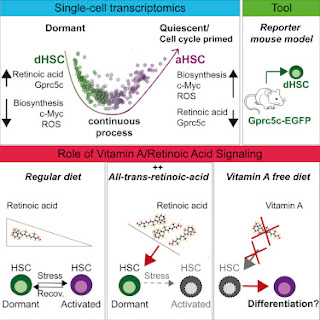According to scientists at the Case Western Reserve University School of Medicine, large amounts of Vitamin D could be the solution to the bane of fair-skinned people - red, painful sunburns. People who ingested large quantities of Vitamin D one hour after getting a sunburn felt long-term benefits, which included a substantial reduction in redness, swelling and inflammation. The research was the first-ever study to explore the anti-inflammatory properties of Vitamin D. The study was published in the May edition of the Journal of Investigative Dermatology.
This research raises the question: Could quickly healing skin result in better protection from the ultraviolet rays of the sun and, potentially, from getting skin cancer? Skin cancer is the most common type of cancer occuring in the U.S., according to data tracked by the US Centers for Disease Control and Prevention.
During the study, twenty people received a sunburn utilizing a lamp, then were given a placebo, or varying amounts of Vitamin D. The Vitamin D doses were given in massive amounts ranging anywhere from 12,500% to 50,000% of the recommended daily amount. The people who received the largest amounts of the vitamin experienced the best results. They had reduced skin irritation within two day and suffered from less redness.
The scientists theorized that the mechanism behind the fast healing is that Vitamin D increases anti-inflammatory enzymes in the epidermis. This enzyme acts to trigger the production of other anti-inflammatory proteins and stimulates repair of tissues.
The health benefits of Vitamin D have been controversial over time. A decade ago, research had linked a deficiency of Vitamin D to both osteoporosis and heart disease. However, more recently, an analysis of forty research studies indicated that healthy individuals were not likely to receive any benefits from taking Vitamin D.
The research is promising, but more, larger studies need to be conducted in order to further explore these early results.
News, research, information, and views regarding vitamins and minerals.
Find out about their health benefits, dietary sources, supplementation info, and more.
Study: A Deficiency of Vitamin A Could Negatively Impact Stem Cells
A study done at the German Cancer Research Center has found that a vitamin A deficiency can negatively impact
blood stem cells. Specialized cells located in the blood, digestive system, and skin have a relatively brief
lifespan and require regular replenishment. They come from stem cells which constantly divide in order to
survive.
In 2008, scientists found a group of specialized stem cells which are located in the bone marrow that are dormant the majority of the time, and only become active in order to combat viral or bacterial infections, loss of blood, or in reaction to chemotherapy treatments. When their task is completed, these powerful stem cells return to a dormant state.
The mechanisms that case the stem cells to activate and deactivate have now been identified. It was discovered that retinoic acid, which is a vitamin A metabolite, is critical for these processes. When retinoic acid isn't present, active stem cells aren't able to go back into dormancy and they develop into specialized blood cells, instead.
Using specially-bred mice, researchers learned that the stem cells are lost as a reservoir if there is a shortage of retinoic acid. "If we feed these mice on a vitamin A deficient diet for some time, this leads to a loss of stem cells," Nina Cabezas-Wallscheid, lead author of this study, stated. "We can prove for the first time that vitamin A has a direct impact on blood stem cells."
This research serves to help provide new insight into previous studies which indicated that vitamin A deficiency impairs the immune system. "This shows how vitally important it is to have a sufficient intake of vitamin A from a balanced diet," Cabezas-Wallscheid said.
Researchers speculate that these findings may play a role in future cancer treatments because cancer cells, like stem cells, rest in a dormant state and their metabolism is stopped, resulting in resistance to chemotherapy.
Study pulished in Cell.
In 2008, scientists found a group of specialized stem cells which are located in the bone marrow that are dormant the majority of the time, and only become active in order to combat viral or bacterial infections, loss of blood, or in reaction to chemotherapy treatments. When their task is completed, these powerful stem cells return to a dormant state.
The mechanisms that case the stem cells to activate and deactivate have now been identified. It was discovered that retinoic acid, which is a vitamin A metabolite, is critical for these processes. When retinoic acid isn't present, active stem cells aren't able to go back into dormancy and they develop into specialized blood cells, instead.
Using specially-bred mice, researchers learned that the stem cells are lost as a reservoir if there is a shortage of retinoic acid. "If we feed these mice on a vitamin A deficient diet for some time, this leads to a loss of stem cells," Nina Cabezas-Wallscheid, lead author of this study, stated. "We can prove for the first time that vitamin A has a direct impact on blood stem cells."
This research serves to help provide new insight into previous studies which indicated that vitamin A deficiency impairs the immune system. "This shows how vitally important it is to have a sufficient intake of vitamin A from a balanced diet," Cabezas-Wallscheid said.
Researchers speculate that these findings may play a role in future cancer treatments because cancer cells, like stem cells, rest in a dormant state and their metabolism is stopped, resulting in resistance to chemotherapy.
Study pulished in Cell.
Subscribe to:
Comments (Atom)

